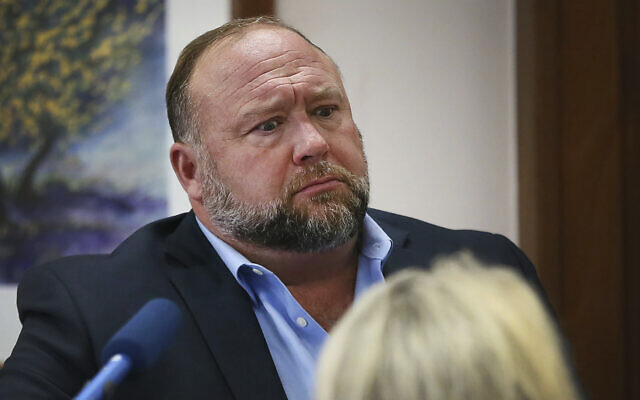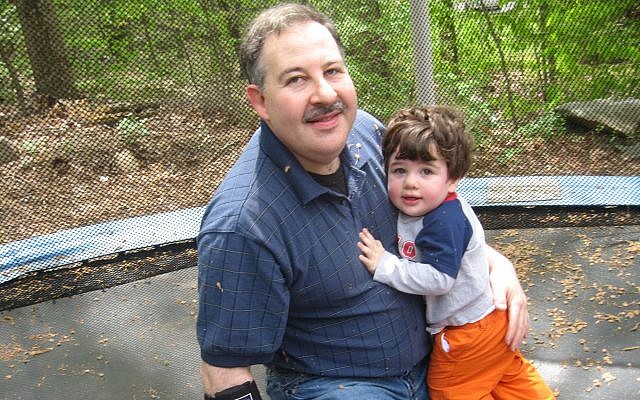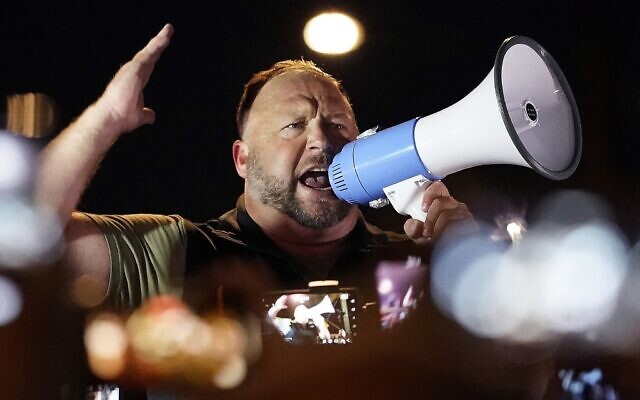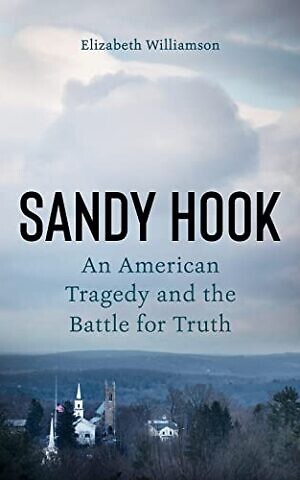 |
| Six year old Noah Pozner A"H |
 |
| “People used the tenets and practices of his faith to question everything, from the nature of Noah’s funeral to his burial, to sort of question whether he was dead or not. |
Sandy Hook ‘hoax’ trial shows how false narratives are fed and spread, warns author
In her new book, ‘Sandy Hook: An American Tragedy and the Battle for Truth,’ NYT journalist Elizabeth Williamson sounds the alarm on more pernicious conspiracy theories
“I trace it in our society and our culture, going from Sandy Hook to the spread of conspiracy theories and misinformation, especially aided by social media. It has brought a lot of worry to us over the last decade,” said Williamson.
The book follows the flow of disinformation from Sandy Hook to Pizzagate, QAnon, COVID-19 and the January 6, 2021, riot at the US Capitol. Since the book’s publication in March, conspiracy theories echoing those about Sandy Hook continued to materialize — including after the May 21 school shooting in Uvalde, Texas.

“An increasing number of individuals, for reasons of ideology — or in Alex Jones’s case, for profit — are willing to deny established truth and accepted science more frequently,” Williamson said. “January 6 really showed us that people are more often willing to cross from the virtual to the real world and defend these false beliefs with confrontation and with violence.”
For the book, she sifted through around 10,000 pages of court documents and interviewed over 400 people. One emerged as an especially crucial source: Leonard “Lenny” Pozner, a Jewish-American father whose son Noah Pozner was the youngest Sandy Hook shooting victim. Noah had celebrated his sixth birthday less than a month before his death.
“This book would not exist without Lenny Pozner, and without his willingness and generosity in sharing his story,” Williamson said.
On December 14, 2012, Pozner and his then-wife Veronique had their three children — Sophia and twins Arielle and Noah — at Sandy Hook Elementary. When Veronique rushed to the scene after receiving an alert, she saw that Sophia and Arielle were with Lenny in the school parking lot. But inside one classroom, a police officer found the wrenching sight of 14 slain children — including Noah, who was wearing his Batman hoodie.
Readers have told Williamson that it’s a difficult book about a dark subject, with some unsure about even picking it up.
“If people are unwilling to engage with the book because of the horror of that day, I completely understand the human reaction,” she said. “But I would really encourage people to try to [read] it anyway… In the end, it’s really a story of Lenny and all the families who confronted this phenomenon of misinformation.”
Born in Latvia, Pozner left the Soviet Union with his parents, living in Israel and Italy before finally settling in the US. With a background in the tech industry, Pozner once believed in a few conspiracy theories himself — including about the moon landing.
“He was the person that helped me understand, early on, just what a significant threat the Sandy Hook conspiracy theories were, how they were this watershed in how information and disinformation travel,” Williamson said, adding that this included “how social media algorithms feed false information to people” and how social media helps isolated conspiracy theorists “find each other and gather online.”

Williamson credits Swiss-born Veronique — who, like Pozner, is also an immigrant to the US — for insights stemming from her career as a health care worker, including with regard to COVID-19 misinformation.
Williamson also interviewed Sandy Hook parents Neil Heslin and Scarlett Lewis, whose son Jesse died in the shooting and who filed one of three separate lawsuits against Jones.
In covering many legal battles over the years, it was through one in particular — a family court hearing after Jones’s divorce from his ex-wife, Kelly — that Williamson introduced herself to Jones and got an interview with him. They met at his office in Austin, Texas, a location that he keeps private. The interview lasted for three hours. In the book, she recalls him sweating despite freezing indoor temperatures, pacing around the office and comparing himself to a leader of the Texans at the Alamo.
Following the publication of the interview in 2018, multiple Big Tech companies from Apple to Twitter booted Jones and Infowars off their platforms.
“Although he likes to say he was only spreading the theories of others, or he was just reporting what was already out there, in actuality I found he was one of the first people to embrace and concoct a false theory around the Sandy Hook shootings,” Williamson said. “Hours after the shooting, he began spreading it. He did it for years.”
Tens of millions tuned in to hear Jones’s show online or through hundreds of radio stations nationwide. When he wasn’t pitching conspiracy theories, he was hawking merchandise to address such fears as the end of days, civil war or a government takeover. Such merchandise brought $50 million in revenue each year, according to the author.
“Once he hit on a theme that seemed to resonate with his listeners, he did not let go,” Williamson said. “Sandy Hook was one of them. What he did in the aftermath of Sandy Hook was despicable even for him. He named specific victims, thereby exposing them to very personalized abuse, including Lenny Pozner.”
The harassment Pozner faced included antisemitism.
“I would say Lenny was one of the chief recipients of this,” Williamson said. “People used the tenets and practices of his faith to question everything, from the nature of Noah’s funeral to his burial, to sort of question whether he was dead or not.
“Part of it was the sort of conspiratorial bigotry — the idea that he and Veronique… did this for profit, somehow pushed by the government to fake their own child’s death. That is truly despicable. Some of the individuals who spread these false theories targeting Lenny and Veronique in particular were rank antisemites and Holocaust deniers.”
Lenny found ways to push back. He won a defamation case against James Fetzer, the co-author of a book titled “Nobody Died at Sandy Hook,” whom Williamson characterized as an antisemite. And he engaged in an effort to speak truth to conspiracists by participating in a group chat with the members of a Facebook group called “Sandy Hook Hoax.” Lenny aimed to transparently answer questions while providing documentary evidence — Noah’s birth certificate, school resources and, tragically, postmortem report. Initial sympathy turned to vitriol, with Lenny eventually getting kicked out of the group.
“I trace in the book how [the group] turned from expressing condolences and identifying themselves, asking great questions, to attacking him. He was such a threat to the group by being there and trying to confront them with the truth,” Williamson said.

Yet Pozner was also fielding respectful questions from other members of the group – mainly young mothers whose children were around the age of the Sandy Hook victims. These women could not accept that children had perished in the mass shooting and turned to conspiracy theories for an explanation. Pozner established a separate Facebook group where they could speak with him. These women became Pozner’s first volunteers for a nonprofit he founded called the HONR Network that fights online hate and harassment, from conspiracy theories to revenge porn.
“He’s made it his life’s work to push back against this kind of material, to support and defend vulnerable people who are targeted by it,” Williamson said.
In speaking with Sandy Hook families overall, she said, “I was incredibly privileged to hear their stories. I am incredibly grateful they trusted me with their stories. They did it because they want to help all of us. They’ve seen and experienced firsthand the human impact of the disinformation proliferating in our society. They want to issue a warning to all of us.”



